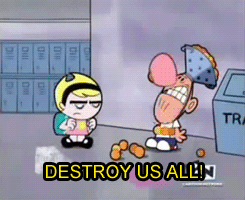Climate Change Science Is Conclusive, And Here’s What You Can Do About It
Climate Change Science is Conclusive, and Here’s What You Can Do about It
In a recent study containing over four decades of satellite data (https://www.bloomberg.com/…/climate-change-is-disrupting-th…), researchers concluded that the odds that climate change is occurring naturally without human influence are approximately 5/ 1,000,000 or 0.0005 percent.
In any other peer-reviewed scientific study this would be regarded as very convincing evidence that our climate change is anthropogenic; however, American society, in particular, allows non-scientific members of our community speak with emotionally-guided or overly-simplistic (https://www.washingtonpost.com/…/does-trump-even-know-tha…/…) rhetoric on whether or not this is science we should consider.
Whether or not scientific data is comforting to you has no bearing on whether or not the data in question is conclusive.
It is disheartening to me, as a science major heading toward graduation and a future where I hope American politics adequately represent me, to know that my fellow citizens are swayed by unwarranted, snowball-in-congress (https://www.youtube.com/watch?v=3E0a_60PMR8) arguments that are actually funded by people who benefit from hiding climate change evidence (https://www.scientificamerican.com/…/dark-money-funds-clim…/). Even though it may be profitable for now to pursue business practices that harm the environment and cause climate change, it will be more expensive for our society to pay for the damage done to our land in the future. We will, as a society, eventually have to pay for the citizens who need emergency treatment for asthma, illness from contaminated water and air, and heat complications. There are greater storm risks with climate change, and we, as a society, will have to pay more for emergencies that could have been prevented (https://www.researchgate.net/…/links/5566497208aeccd77735a1…). If companies are not paying for environmentally-protective practices now, society will be paying their debt in the future-- plain and simple.
Information confirming climate change is particularly disarming when one considers debts we cannot pay back. For example, irreversible changes to interspecies interactions are caused by climate change. For example, plant-pollinator interactions rely on seasonal temperatures and daylight hours to ensure that when plants are ready to be pollinated, bees are also ready to pollinate. Often plants' perception of season relies on hours of sunlight. If a plant species receives an ideal time of daylight, morphological changes occur to initiate plant flowering or fruit development. Climate change does not alter the hours of daylight for plants, so they develop on their typical timeframe (not taking greenhouse gas concentration and temperature changes into account). On the other hand, the plant pollinators like bees rely on temperature changes to represent a seasonal change to signal when they should pollinate plants. Because temperatures prematurely rise in the progress of a year due to anthropogenic climate change, bees are prematurely signalled to start pollination for plants when the plants are not ready to be pollinated. This is called a phenological mismatch. When bees are ready to pollinate before plants are in their pollination season, bee populations are devastated on a large scale because they do not have access to nectar and pollen that they need to survive. The phenological mismatch also reduces the reproductive success of the plants to which the bees are co-adapted (https://onlinelibrary.wiley.com/…/…/j.1461-0248.2008.01269.x). Phenological mismatches caused by climate change are not exclusive to plant-bee interactions; this is just one of many examples.
Here's what you can do to fight climate change, as is: - make it known to you local legislator that climate change is an important issue to you (a link to find your local legislator: https://gov.oregonlive.com/legislators/) - donate to climate scientists, political action groups, or whatever group you like and feel like represent you best ( I prefer Natural Resources Defense Council, Environmental Defense Fund, Union of Concerned Scientists, etc.) - be a smart consumer (http://cejsh.icm.edu.pl/…/15_B.Reformat_The_idea_of_smart_s… or https://link.springer.com/article/10.1007/s10603-012-9188-7) - talk about this issue with others (helpful ways to discuss this issue with others: https://www.theatlantic.com/…/how-to-talk-about-cli…/375067/) - read more and gain a better understanding of the issue to form your own opinion (here's more information on critical thinking to sort through which literature is good literature: https://www.criticalthinking.org/files/Concepts_Tools.pdf) - other tips for fighting the good fight: https://davidsuzuki.org/…/top-10-ways-can-stop-climate-ch…/… https://www.weforum.org/…/how-to-talk-about-climate-change…/ https://www.nrdc.org/…/how-you-can-help-fight-climate-change
TL;DR: Climate change is anthropogenic. If companies do not invest in environmentally-safe practices in the status quo (because we as consumers and constituents do not let them know it is an important issue), taxes will have to cover the costs (with interest) in the future. However, some costs can never be paid back-- like, if entire bee species go extinct.
More Posts from Wtfwid-blog and Others



A mesmerizing darkness and the skyhigh watcher..


me

Paul Klee Abstract Line Drawing (1958)









-
 wtfwid-blog reblogged this · 6 years ago
wtfwid-blog reblogged this · 6 years ago